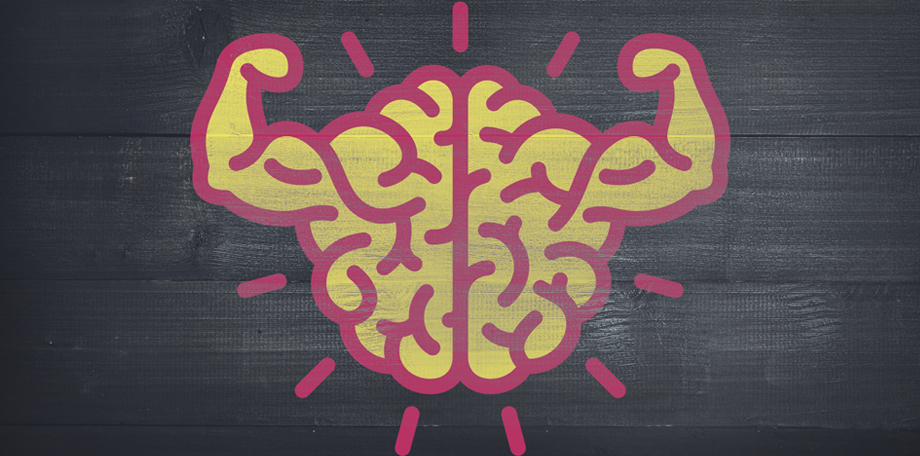The 2021 Olympics may best be remembered for the spotlight switching from the medal podium to mental health. Simone Biles, arguably the greatest gymnast of all time, quit the games to take care of herself.
She’s not the only athlete at the top of their game to take a step back recently. Naomi Osaka withdrew from both the French Open and Wimbledon, revealing that she has been dealing with anxiety and depression since winning the US Open in 2018, the first of her four Grand Slam titles.
Biles’ withdrawal from the Olympics has been met with support worldwide, including fellow Olympian Michael Phelps. Phelps earned 23 gold medals in his Olympic career and told the Today Show that the mental health of athletes cannot “be brushed under the rug anymore.”
The same can also be said for leaders who are at the top of their career.
Enormous Expectations
Just like a champion athlete, executives face psychological pressures of performing at the top. These are people we would consider exceptional when it comes to mental fitness. The more pressure that is put on them, generally, the better they perform. But what you don’t see are the self-doubts that come up when there is a confluence of factors to bear.
I worked with an Olympic hopeful many years ago who had an event occur during a competition. Her coach handled it poorly, choosing methodologies that led to her being traumatized by the event. She replayed the traumatic event in her mind over and over again, ruminating to the point where she was unable to perform her sport at her previous ability.
Related: Rumination in Times of Crisis
What happened is that she created a new underlying belief system that did not exist before the incident. The conversations she had with herself about that competition were so deeply ingrained and repeated that it affected who she thought she was and what she was capable of achieving. We were able to work through her issues, though she ultimately decided not to go back to the intensity of international competitive sports.
I work with many professionals who are often under a great deal of pressure to be perfect. Whether that pressure is perceived or real, it eventually takes its toll. Their colleagues and employees see them polished, refined, a picture of perfection – the image that they want to portray. But as an executive coach who builds deep, trusting relationships with my clients, I get to see them unvarnished, raw and vulnerable. It’s not uncommon to see self-doubt raise its ugly head, but it’s usually unfounded.
Self-Doubt at the Top
When we experience self-doubt or fear, we try to suppress or avoid it. Enough of this psychological discomfort can eventually lead to the inability to respond to stress. For Olympians, that means underperforming in competitions, but for others, it can manifest as stress, often escalating to panic attacks. People who are under tremendous pressure to perform and do it publicly face a different level of psychological stress.
We often put these people on a pedestal and forget the humanness of it all. Even when you are at the top of your game, you can experience events that can be painful or destabilizing. Leaders aren’t exempt, but we tend to expect more from them. Unfortunately, this self-doubt can hit anyone.
So, how do we build mental toughness at the highest level? Work on your resilience to optimize your performance in life. The key is to work on it when times are good. It’s a vaccination that will help you diminish or even mitigate the effects of stress when high stressors appear.
Strengthen your Mental Fitness
Think of your brain as a muscle that you have to condition and train, just as an athlete does his/her body. Your prefrontal cortex is the part that is involved in complex behaviors and greatly contributes to personality development. It receives input from multiple other parts of the brain and processes that information and adapts accordingly. It contributes to a wide variety of executive functions, including:
- Focus
- Understanding the consequences of your actions
- Impulse control
- Planning
- Coordinating complex behaviors
Strengthening your prefrontal cortex allows you to move with agility from triggered states such as when you are agitated and reactive to non-triggered states like when you are calm and collected. This is basically training your mind and body to respond differently in times of stress. Here are four ways to do that:
- Mindfulness is a mental state where you focus on the present moment. It has a myriad of benefits, from alleviating the symptoms of stress to improving memory and increasing empathy. Mindfulness allows you to calmly acknowledge and accept your feelings and thoughts, but it’s important to understand that mindfulness is developed through practice.
2. Deep diaphragmatic breathing is the fastest way to slow your body’s physiological response to stress. This is the method I use with my clients when they start to feel stressed:
- Sit in a comfortable position. You could also lie down or lean against a wall for support.
- Breathe in through your nose, concentrating on completely filling your belly with air like a balloon.
- Hold your breath for a slow count of 6, then, exhale slowly through your mouth until your belly flattens. Rinse, repeat until your body softens and your tension is released.
3. Meditation is taking breathing and mindfulness to the next level and has made its way into mainstream culture for good reason. Its benefits include increasing your leadership capacity to improving your memory/focus and enhancing interpersonal relationships.
4. MindMastery™ is a tool to develop your self-awareness, mindfulness, emotional intelligence and resilience. I’ve spent over 20 years of applied research and over 40,000 one-on-one coaching hours to refine this process. It starts with your underlying operating system – your beliefs and the thoughts you have, as well as your blind spots, which are areas where we don’t recognize shortcomings. With MindMastery, you learn how to reframe those thoughts, beliefs, values and perspectives that are out of alignment with your success. You move away from black and white thinking to allow your brain to see multiple perspectives. Over time, practicing these new ways of thinking and behaving become a habit.
Changing the Narrative about Mental Health
Simone Biles and Naomi Osaka sent a powerful message about mental health and the fact that mental fitness is just as important as physical fitness. We simply can’t be the healthiest version of ourselves without the mental health component. These athletes have shown us that resilience isn’t about pushing through at all costs. It’s about understanding when you need to step back and prioritize your mental well-being.
Leaders can translate this to their organizations by making sure they create work environments where people don’t feel pushed past their breaking points. It’s up to all of us to cultivate a stronger, healthier corporate culture. In order to have engaged employees who thrive in their careers, mental health must be considered and discussed in an open and honest dialogue.




